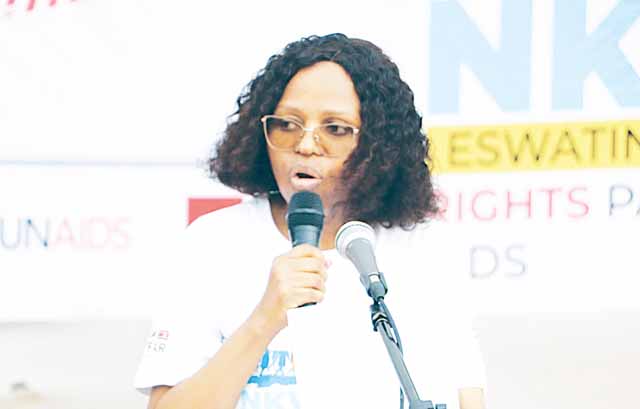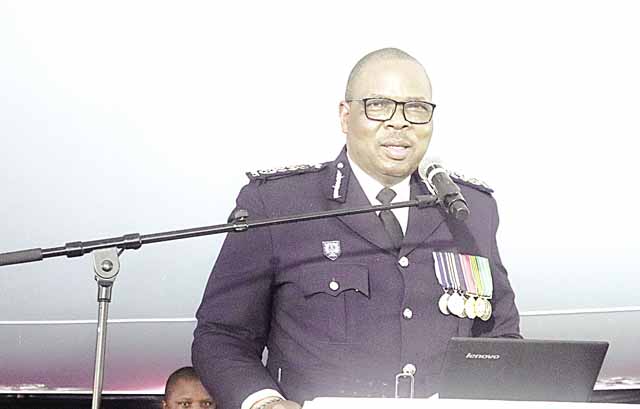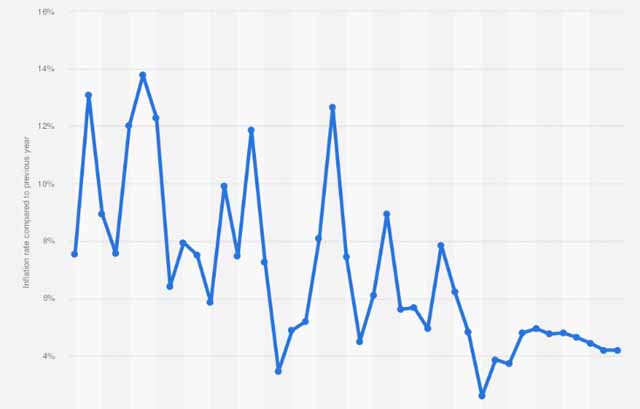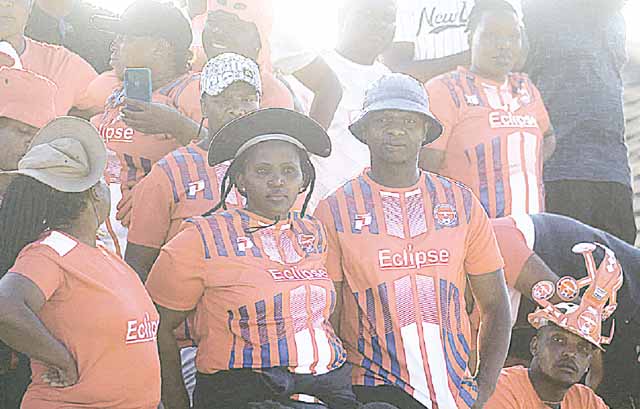By LINDANI MASEKO | 2024-11-25

ABOUT 413 young people between the ages of 15 and 24 are living with HIV in the Hhohho region, it has been revealed.
National Emergency Response Council on HIV/AIDS (NERCHA) Executive Director Dr Nondumiso Ncube during the Regional World AIDS Day commemoration at Maphalaleni Inkhundla on Friday, expressed deep concern on such statistics, stating that they were very disturbing, adding that of these young people living with the disease, 125 were males, while 288 were females.
She said averages of 34 new cases of HIV/AIDS were reported each month.
The event was organised in collaboration with the Health Promotion Unit, NERCHA and the Hhohho Regional Health Management Team.
It was a build-up geared towards raising awareness about HIV/AIDS while simultaneously advocating for the rights of children within the community.
Ncube added that a report by UNAIDS revealed that among individuals aged 15 and older, approximately 25.9 per cent were living with HIV, and 21.3 per cent of these individuals were males, while 30.3 per cent were females.
“It is disturbing to see such a significant prevalence of HIV in this age group,” she said.
Dr Ncube urged that young people seek help without feeling victimised or stigmatised.
“It is crucial for young individuals to take responsibility for protecting themselves against the disease,” she said.
favour
She said teaching the youth about sex should be a right, not something seen as a favour.
During the event, Minister of Sports, Culture and Youth Affairs Bongani Nzima also highlighted critical findings from a recent report indicating that men played a significant role in perpetrating the increasing rates of HIV among young girls.
“The behaviour exhibited by men who engage with underage girls not only undermines our efforts to combat HIV/AIDS, but it also stifles educational outreach regarding the disease among young people,” said the minister.
Nzima expressed concern over the alarming dropout rates among the youth in Maphalaleni, often due to factors such as teenage pregnancies.
“Government has taken steps to ensure that children remain in school by providing free primary education and scholarships for higher learning institutions,” he stated.
He also added the important role parents played in making sure that their children stay in school. “Parents must ensure that their children attend school and focus on learning; if not, they risk compromising their future,” he said.
In addition to educational measures, the minister stressed on the importance of comprehensive sex education. He said there must be ways to develop effective methods to educate the youth about sexual health and self-care, as well as the responsibilities of parenthood when they are not yet ready.
Furthermore, Nzima introduced initiatives aimed at empowering young people economically, including the Youth Enterprise Revolving Fund, a business support programme designed to alleviate youth unemployment. He urged all young individuals to explore how these funds could benefit them.
“It is essential that the youth actively engage with these opportunities to help secure a stable financial future,” he said.
advised
Maphalaleni MP Mabulala Maseko also spoke on the issue of teenage pregnancies and advised young girls to take care of themselves so that they do not assume the responsibility of being young parents. In addition, other guests included Manzini Regional Administrator Princess Tsandzile.
Meanwhile, information stalls were set up by various stakeholders during the event to offer valuable resources and services to the community. These stalls served as a hub of information, where community members could access crucial details about HIV prevention, sexual health, and general well-being.
In addition to informational resources, several organisations provided essential health services directly at the event. Community members had the opportunity to undergo free and confidential HIV testing, an important step in promoting awareness and early diagnosis.
Additionally, screening for sexually transmitted infections (STIs) was available, allowing individuals to take proactive measures to safeguard their health.
The stalls also offered screenings for conditions such as diabetes and hypertension (BP). These health screenings not only provided immediate health assessments but also facilitated referrals for individuals requiring further medical attention or support.
share story
Post Your Comments Below

NATIONAL Commissioner of Police Vusi Manoma Masango has asked the church to rise up and fight aga...

Headline inflation rate for October as measured by the annual percentage change in the Cons...


UNDER a starry sky, the Drakensberg Boys Choir launched its Noël Tour 2024 with an unforgett...
All material © Swazi Observer. Material may not be published or reproduced in any form without prior written permission.
Design by Real Image Internet